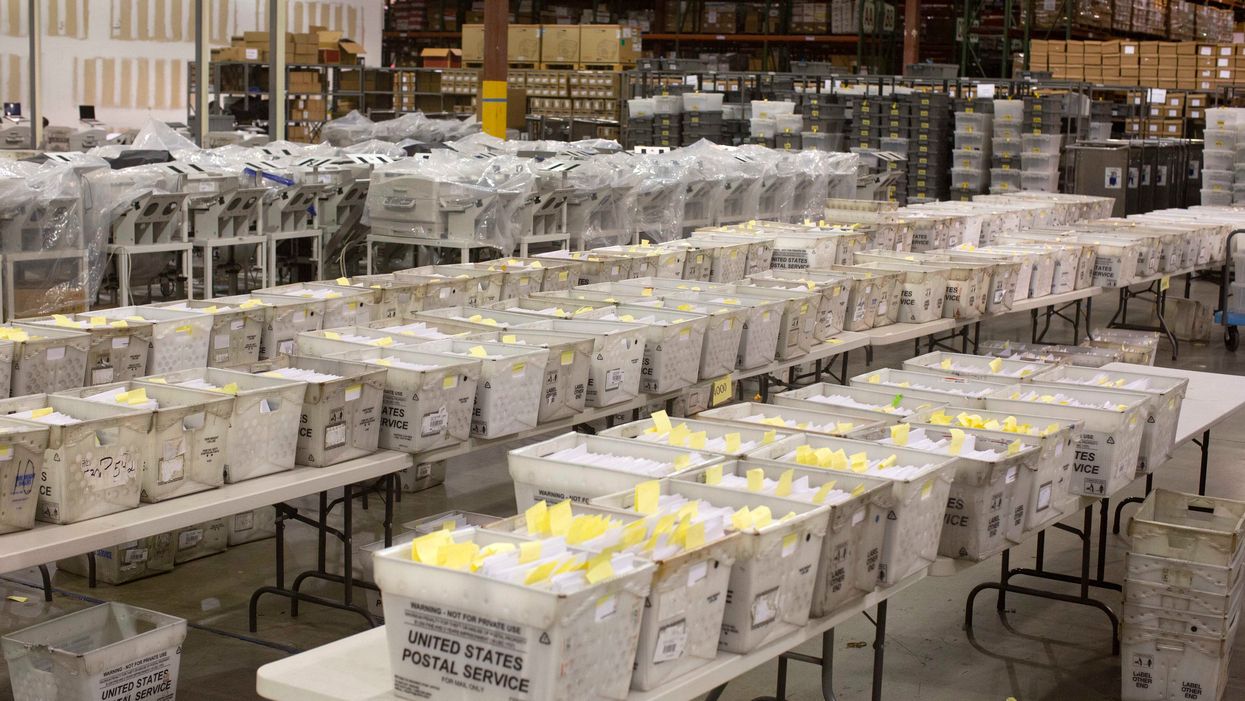Ready is the democracy program director at the U.S. Public Interest Research Group, the network of state organizations that use research, grassroots organizing and direct advocacy to advance the public interest.
Golden State Warriors take 2016 NBA championship, 3-1. Cleveland Indians win 2016 World Series, 3-1. New York Yankees claim 2004 American League pennant, 3-0.
You don't remember those headlines? Of course not. Nobody ran those stories because, while those three series records all existed at one point, they were not the final results. To the dismay of fans in the Bay Area, northern Ohio and the Bronx, there were more games to be played — and the opposing teams ended up the comeback victors.
While we don't have a final whistle, buzzer or out in our elections, we still need to hold tight until every vote is tabulated. Historically, because the major share of all that counting has happened on Election Day, American's have almost always known the winner of their presidential contests at some point — often very late — the night of that momentous day.
But that's unlikely to be the case next month.
To protect public health, states across the country have wisely shifted toward allowing more voters to cast ballots remotely. But mail-in ballots, while safer, take more time to transport and tally than traditional in-person voting. Election administrators in many states won't even have all the ballots to count by the end of Election Day, much less the final totals.
So, realistically, the presidential contest won't be over the night of Nov. 3 or even the next day. To keep the sports metaphors going, this series is likely going the full seven games. And yet, recently, there has been a lot of concern about what happens if election results change after election night. What if a Republican lead at 11 p.m. on Nov. 3 is just a "red mirage"? What if there is a "blue shift" in the days following the election?
This is the wrong way to think about the election results. Whatever the numbers are at midnight, they won't be wrong — they will just be incomplete. The results will certainly change as the votes are counted. What matters is how we react to and report on those changes. Americans must be reminded that they will need to be patient and wait longer than usual before we can declare any winners.
Fortunately, most voters already recognize this new reality. In fact, 71 percent of Americans do not expect to know the results of the election on Election Day, and 64 percent are comfortable with that delay.
But ultimately, the public will likely take its cues from our leaders and our media. Given the president's refusal to commit to abiding by the results of the election, and the Democratic fears of another Trump administration, we may not be able to rely on the candidates or parties to act responsibly.
That shifts the onus even further toward the media. There are numerous examples throughout history of journalists jumping the gun and prematurely calling an election. There's no room for that kind of error this time. In a mostly mail-in election, traditional measurements, like percentage of precincts reporting, should be replaced with metrics like percent of ballots received. Overall, America's reporters must be cautious and circumspect in their election night coverage to stave off confusion and potential chaos.
We would all do well to remember that on Election Day, there won't be a "red mirage" or a "blue shift." There will just be an ongoing election. That contest, like our favorite sporting events, won't be over just because one "team" is leading at midnight on Nov. 3. The 2020 election will be over when all the votes are counted, whenever that might be.



















